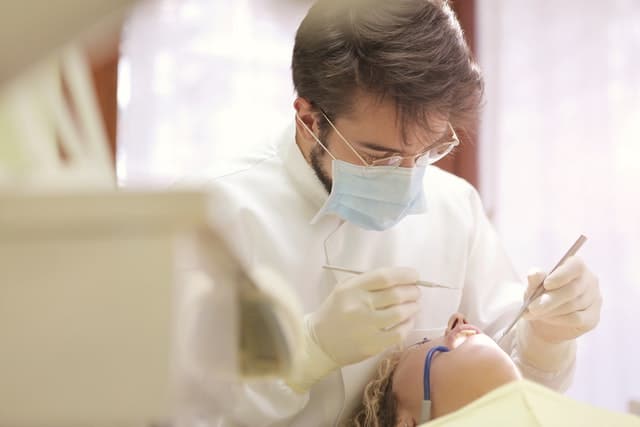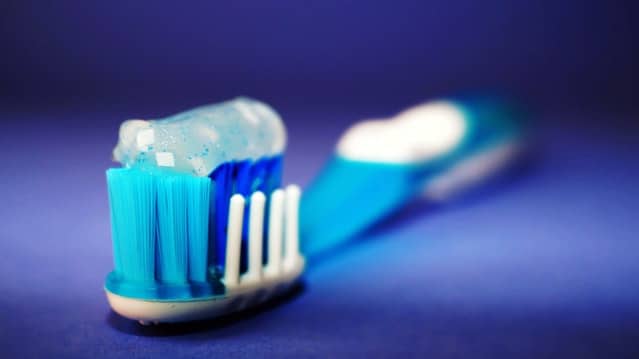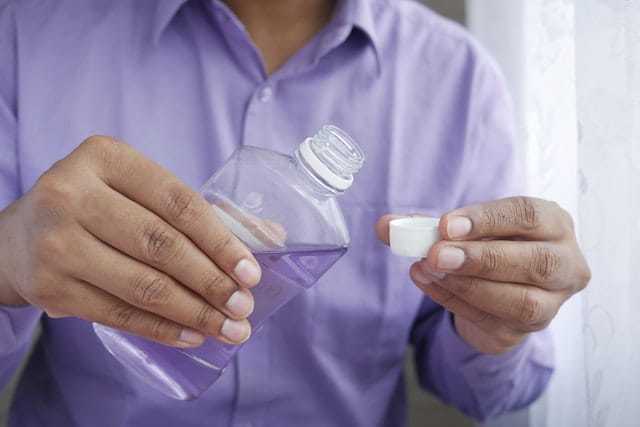How to Keep Your Teeth Healthy, Strong & Bright
We all know that keeping our teeth healthy should be a priority, but we might not be as knowledgeable about the best ways to keep our teeth and mouth healthy.
Keeping your teeth healthy is just as important as any other form of health, and caring for your teeth does not have to be a complicated process!
If you want to have strong and healthy teeth, you need to care for them daily.
Living with bad teeth can be incredibly painful, can affect your self-esteem, and dental work is costly. Moreover, there is a strong connection between oral health and overall health, making it even more important to take care of your teeth and mouth.
Dental clinics will usually work with you to make services affordable, but maintaining your teeth well on your own can still save you tons of money at the dentist or orthodontist!
Fortunately, treating your teeth is not that different from treating the rest of our bodies.
Keep reading below to learn how to keep your teeth healthy!
What Causes Most Common Tooth Problems?

Tooth problems can arise from a variety of factors, and understanding these causes can help in preventing dental issues and promoting long-term oral health. Here’s an overview of the most common causes of tooth problems:
Poor Oral Hygiene
One of the leading causes of tooth problems is inadequate oral hygiene. Failing to brush and floss regularly allows plaque, a sticky film of bacteria, to build up on teeth.
Over time, plaque hardens into tartar, which leads to cavities, gum disease, and other oral health issues if not removed.
Diet High in Sugar and Acids
Consuming foods and drinks high in sugar and acid, like soda, candy, and citrus fruits, can significantly impact dental health. Sugar feeds harmful bacteria in the mouth, leading to acid production that erodes enamel and creates cavities. Acidic foods can further weaken enamel, making teeth more susceptible to decay and sensitivity.
Dry Mouth
Saliva is essential for neutralizing acids and washing away food particles. A lack of saliva production, known as dry mouth, creates an environment where bacteria thrive, increasing the risk of tooth decay and gum disease. Dry mouth can be caused by certain medications, health conditions, or dehydration.
Grinding and Clenching (Bruxism)
Habitual grinding or clenching of teeth (often due to stress or sleep issues) can wear down enamel, leading to sensitivity, cracks, and even fractures. Bruxism can also contribute to gum recession and jaw pain, further affecting oral health.
Smoking and Tobacco Use
Smoking and tobacco products increase the risk of tooth problems by staining enamel, reducing saliva production, and harming gum tissue. Tobacco use is a major risk factor for gum disease and oral cancer, and it can lead to tooth loss over time.
Gum Disease
Gum disease (gingivitis and periodontitis) is an infection of the gum tissues caused by plaque buildup. If untreated, it can cause gums to pull away from teeth, creating pockets that harbor more bacteria. Advanced gum disease can damage the bone supporting the teeth, leading to tooth loosening or loss.
Genetics
Genetic factors play a role in susceptibility to certain dental issues. Some people may inherit softer enamel, making them more prone to cavities, while others may have a higher risk of gum disease. However, proper oral care can often mitigate genetic predispositions.
Neglecting Regular Dental Visits
Skipping dental check-ups and cleanings allows small problems to progress into more serious issues.
Regular professional cleanings and exams help remove tartar buildup and detect cavities, gum disease, and other concerns early on when they’re easier to treat.
Hormonal Changes
Hormonal fluctuations, particularly during pregnancy, puberty, and menopause, can make gums more sensitive and susceptible to inflammation and gum disease. Maintaining excellent oral hygiene is especially important during these times.
Trauma and Injury
Accidents, sports injuries, and other forms of trauma can lead to chipped, cracked, or broken teeth. Immediate treatment for any dental injury is crucial to prevent infection and further complications.
Best Ways to Keep Your Teeth Health
A healthy smile goes beyond appearance—strong teeth and gums are crucial for overall wellness, aiding in digestion, supporting clear speech, and even impacting heart health.
By adopting consistent habits, you can protect your teeth from decay, strengthen your gums, and keep your mouth feeling fresh and clean.
The best ways to maintain dental health are simple yet effective, helping prevent common issues like cavities and gum disease while promoting a bright, confident smile.
Here are some essential practices that make keeping your teeth healthy both manageable and rewarding.
Brush Regularly

Brushing your teeth is the simplest form of maintenance and the most important step in keeping your teeth healthy.
Proper brushing is necessary for cleaning your teeth and gums efficiently, and it is crucial to keeping healthy teeth.
Brushing removes plaque from the surface of your teeth and prevents damage from plaque buildup that causes calculus and the gum disease gingivitis.
Use the Right Toothbrush
Although any teeth brushing is beneficial, you can improve the health of your teeth more by using the right toothbrush.
First, it is important to purchase a new toothbrush every three to four months.
A brush that becomes frayed or worn can damage your gums. A child’s toothbrush may need to be replaced more often.
Next, you should determine what toothbrush will be best for your teeth. If you don’t know anything about what type of toothbrushes are on the market, I suggest you check out Oralcarehome.
Depending on the current condition of your teeth, switching to firmer or softer bristles can make a significant difference in how you brush your teeth. If you already have sensitive teeth, for example, you do not want to use a toothbrush which will bother them even more.
Switching to an electric toothbrush can make a significant difference for many people. Electric toothbrushes are much more advanced at cleaning your teeth and can do a much better job removing germs and other debris left in your mouth.
If you have never tried an electric toothbrush before but think it may be helpful for you, I highly suggest you check out the best electric toothbrush reviews online to determine which is in your price range.
I use a Quip Electric toothbrush, an affordable electric toothbrush option that has made a huge difference in the whiteness and feeling of my teeth.
Last update on 2025-04-26 / This article includes affiliate links/Images via Amazon Product Advertising API. I may earn commissions on purchases made through these links.
Make a Smart Toothpaste Choice!
The toothpaste you use is very important to keeping your teeth healthy, and most people use it and understand its importance.
There are many quality toothpaste options, but an important point is that you should often use toothpaste with fluoride.
Fluoride makes your teeth more resistant to decay and promotes the repair of premature decay before the damage is seen.
Using toothpaste that contains activated charcoal is also highly recommended.
Activated charcoal helps to whiten and improve the appearance of your teeth and promote overall dental health by adsorbing the microscopic plaque, chemicals, and toxins within your mouth that can leave stains on your teeth.
Activated charcoal can also keep your teeth healthy by normalizing the pH balance within your mouth.
I highly recommend checking out activated charcoal products if you don’t feel your current toothpaste is doing the job and you want to improve your smile!
Floss Regularly
Flossing is another important step in keeping your teeth healthy.
Flossing is a necessary form of cleaning the teeth, as it breaks up and removes plaque from between the teeth and gum line. The gum line is where gum disease begins.
Water flossing is a more comfortable and effective form of flossing. A water flosser provides a strong, targeted stream of water that flosses your teeth and was previously a form of tooth care only available at the dentist’s office.
Now, you can purchase a relatively affordable water flosser, like the Oral-B Advanced Water Flosser, to use daily.
Ask your dentist for instructions on how to floss if you find it difficult.
Last update on 2025-04-26 / This article includes affiliate links/Images via Amazon Product Advertising API. I may earn commissions on purchases made through these links.
Use a Mouthwash

Mouthwash has an assortment of benefits that assists with keeping your teeth healthy. Fighting cavities, preventing plaque buildup, and preventing bad breath are a few obvious benefits of mouthwash.
Most mouthwashes are good oral antiseptics that refresh the mouth and reduce bad breath.
If you have a question related to this issue or any other related to keeping your teeth healthy, you can ask Dr. Normand Bach, an orthodontist in Montreal.
Eat A Healthy Diet
What you eat can also affect your teeth. For example, sugary sweets will produce cavities much quicker than nutrient-dense foods.
Additionally, you want to eat a diet that contains a sufficient amount of calcium.
Calcium is a necessary nutrient for keeping your teeth healthy.
The old assumption was that you would receive your daily calcium needs through dairy milk, but fewer people consume dairy products regularly than in the past.
If you want to keep your teeth healthy and are nervous you aren’t getting enough calcium from your diet, a calcium supplement is a great option.
You can get calcium in supplement form, but you also can find an ample amount of calcium in your diet.
Sources of calcium in our diet include:
- Fish (such as salmon or tuna)
- Yogurt
- Cheese
- Milk
- Almonds and Sunflower Seeds
- Green Vegetables (Kale or Spinach)
Along with calcium, you also need to ingest a high amount of Vitamin D so that your body can absorb calcium effectively.
Most calcium supplements come with Vitamin D in them already, but the best source of Vitamin D on the planet is directly from the sun.
Other micronutrients are crucial for keeping your teeth healthy as well, but calcium and Vitamin D are particularly important.
Make Regular Trips to the Dentist
Regular dental visits are a key factor in keeping your teeth healthy.
Although you should see your dentist regularly, you might not fully understand the benefit of making regular check-ups until you require an emergency dental care visit.
Keeping your teeth healthy requires a dentist’s trained mind and eye to assist with regular cleanings, oral cancer screening, mouth pain, broken or loose teeth, and other dental issues.
Final Thoughts:How to Keep Your Teeth Strong and Healthy
As you can see, it is not difficult to keep your teeth healthy.
Dental bills are expensive, which is one of the main reasons you should do as much as you can to take care of your teeth before seeing your dentist.
Talk with your dentist about the types of oral care products and methods that will be most effective for you. The American Dental Association Seal or ADA on a dental product is your guarantee that it meets their criteria for effectiveness.
If you have a serious tooth issue, dental implant procedures are now less painful due to technological advancement.
These new dental solutions can give you a perfect smile just a day after the procedure.
Use these tips, and I am sure you will be on your way to keeping your teeth healthy!
Read Next: What are the Best and Worst Foods and Drinks for Oral Health?





